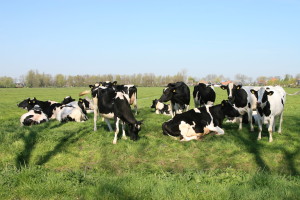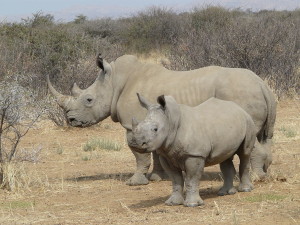Worldlog Settimana 15 – 2015
Domenica, 29 marzo si è svolto il nostro 21° Congresso! Ovviamente abbiamo parlato della campagna elettorale e lo splendido risultato delle elezioni provinciale e le elezioni dei consorzi delle acque, nelle quali il nostro partito nelle provinciali è cresciuto da 7 a 18 seggi e per i consorzi delle acque da 7 a 15 seggi. Ma abbiamo anche guardato avanti alle elezioni del Senato, il 26 maggio, dove possiamo ottenere due, ma forse anche ben tre posti. E’ stata di nuovo una giornata stimolante. E’ incoraggiante vedere cosi tanti membri appassionati del nostro partito tutti assieme. Di buon augurio anche per i partiti fratelli stranieri che devono sapere che il nostro partito 13 anni fa aveva solo pochi membri.
 Mi sono congratulato con gli membri dei consigli provinciali eletti ed gli amministratori dei consorzi delle acqua
Mi sono congratulato con gli membri dei consigli provinciali eletti ed gli amministratori dei consorzi delle acqua
Il governo ha, con una nuova misura relativa alla nostro legge sui animali da latte, spalancato le porte per ancora più mega-stalle di mucche. Cosi un’ulteriore industrializzazione è inevitabile e sempre mucche scompariranno dal pascolo, perché saranno stipati in mega-stalle. Da Aprile 2015 le quote latte europee non ci sono più. Cosi l’Europa cancella l’unico strumento che aveva per tenere in qualche modo sotto controllo il numero degli animali da latte e ridurre l’ulteriore ingrandimento.
È un grande bisogno di un’altra forma di contenimento della produzione. L’industria lattiero-casearia contribuisce in modo significativo ai cambiamenti climatici, la perdita di biodiversità e l’inquinamento delle nostre acque e dell’aria. E gli animali pagano il prezzo più alto: un ulteriore ingrandimento di scala porta ad un deterioramento del benessere degli animali. Non solo noi siamo molto critici della legge. Anche il settore lattiero-caseario ritiene è che il governo scommette troppo sulla crescita delle grandi aziende, mettendo così piccole imprese familiari in difficoltà. Noi sosteniamo l’abrogazione della misura e rendere obbligatorio per tutte le vacche di andare al pascolo.
Un nuovo studio fatto, tra le altre, presso l’Università di Utrecht, conferma che mega-stalle sono anche dannoso per la salute pubblica. Persone che vivono vicino a mega-stalle soffrono più spesso di problemi di salute come la tosse, raffreddore, vertigini, mal di stomaco, dolori addominali e stitichezza. Ma anche disturbi come insonnia, ansia e depressione sono più comuni. I ricercatori spiegano che l’odore di letame distribuisce sostanze irritanti nell’ambiente e regolare esposizione a quell’odore può portare a stress cronico. Questo dimostra ancora una volta: mega-stalle non sono male solo per gli animali e l’ambiente, ma anche per l’uomo.
Sono rimasto sconvolta della notizia che un cacciatore del Texas ha ottenuto il permesso di sparare un rinoceronte nero. Nota bene: una specie animale a rischio d’estinzione, venduto all’asta al miglior offerente, esclusivamente per il piacere del tiro! L’uomo ha perfino ottenuto una licenza esclusiva per portarsi a casa l’animale ucciso.
In questo contesto, ho parlato con l’ambasciatore sudafricano del Unità Penale d’Intelligence (CIE) e si è svolto una tavola rotonda in cui gli scienziati e le organizzazioni naturali ed ambientali hanno sottolineato la gravità e la portata di questo tipo di reato. Sto studiando con il nostro partito le opportunità di divieto olandese ed europea sull’importazione di trofei di caccia. Cacciatori pagano tanti soldi per i viaggi di trofei di caccia su elefanti, leoni e altri animali che sono sulla lista rossa della CITES. I trofei possono essere importati legalmente essendo considerati “beni personali”. Queste attività riprovevoli devono finire, soprattutto ora che è stabilito che ciò complica la lotta contro la caccia illegale e il commercio di avorio e corno di rinoceronte.
Ti auguro una bella settimana!
Saluti,
Marianne
Last Sunday, we already held our 21st Party Congress! Naturally, we looked back on our campaign and the great results of the Provincial Council and Water Board elections where our party grew from 7 seats to 18 in the Provincial Councils and from 7 seats to 15 in the Water Boards. But we also looked ahead to the Senate elections on the 26th of May, where we will achieve two and maybe even 3 seats. It was again an inspiring day. It was heart-warming to see so many passionate members of our party together. It was also inspiring for our foreign sister parties, who should know that our party only counted a few members 13 years ago.
 Ik feliciteerde de gekozen Statenleden en waterschapsbestuurders
Ik feliciteerde de gekozen Statenleden en waterschapsbestuurders
Our government has opened the doors wide for even more mega-dairies with its new measure on the Dairy Act. It will make further industrialisation even more inevitable and increasingly more grazing cows will disappear from the landscape because they will be packed in megastables. The European milk quotas expired this month. By doing so, Europe is deleting the only instrument that it had to somewhat control the dairy herd and to restrict the increase in scale.
Another form of production restrictions is badly needed. Dairy farmers highly contribute to climate change, loss of biodiversity and pollution of our water and our air. And animals pay the highest price: scaling-up will lead to a deterioration of animal welfare. We are not the only ones that are critical of the Act. Even the dairy sector itself finds that the government focusses too much on the growth of large companies, which causes small scale family farmers real problems. We advocate for the withdrawal of this measure and for compulsory grazing for all cows.
A new study by the University of Utrecht among others confirmed that megastables also affect public health. People living in the vicinity of megastables suffer health problems more often, i.e. coughing, colds, dizziness, stomachache, abdominal pains and obstipation. But complaints like sleeplessness, anxiety and depression also frequently occur. Researchers explained that the odour of manure causes irritating substances in the environment and that frequent odour nuisance can cause chronic stress. This proves it again: megastables are not only bad for animals and the environment, but also for people.
I was upset by the news that a hunter from Texas was given permission to shoot a black rhino. It is after all an endangered species, sold to the highest bidder, purely for the enjoyment of shooting! He was even granted an exclusive permit to take the shot animal home with him.
In this context, I spoke with the South African ambassador of the Criminal Intelligence Unit and a roundtable discussion took place during which scientists and nature and environmental organisations emphasised the severity and scope of this form of crime. I and our party are investigating the possibility of a Dutch and European import ban on hunting trophies. Hunters pay much money for trophy hunting trips for elephants, lions and other animals that come under the CITES Red List. The trophies may legally be imported under the heading of ‘personal property’. These reprehensible activities must be stopped, all the more because it obviously complicates the approach to illegal hunting and trade in ivory and rhino horns.
Have a great week!
Greetings,
Marianne

